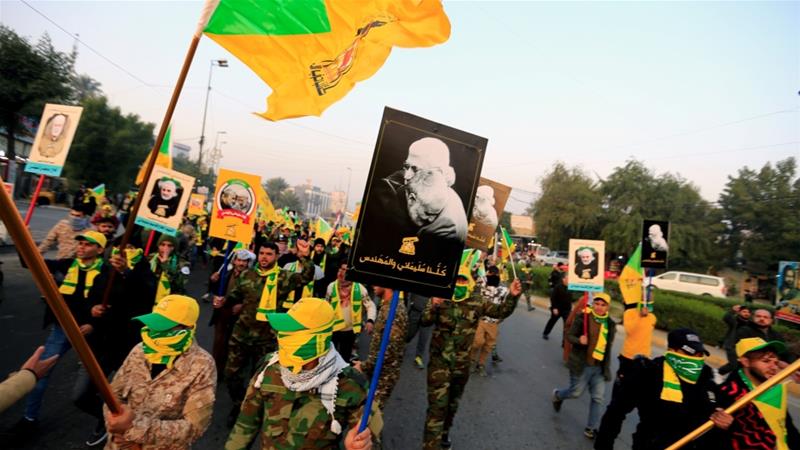Kata’ib Hezbollah Members Arrested by Iraqi Counter-Terror Forces
On 25th June under orders of recently-elected Prime Minister Mustafa Al-Kadhimi, members of the Iraqi Counter Terrorism Service raided a facility belonging to Kata’ib Hezbollah (KH) who are suspected of being involved in rocket attacks against American facilities. Over a dozen KH militiamen were arrested and are being held for questioning, however, no terrorism charges have yet been leveled. Specifics about how many were arrested vary and other important facts aren’t clear. Reuters report three of those arrested were commanders in Iraq’s Popular Mobilisation Forces (PMF) with one of them being Iranian, though this is denied by the PMF. Al-Jazeera reports that rockets were confiscated during the raid but Reuters made no mention of this vital element.
What is a fact is this is the first result of the US-Iraq Strategic Dialogue which took place on 11th June. The dialogue began in April after the events of March dropped US-Iraq relations to their worst point since the start of Operation Inherent Resolve. On 11th March, a large scale rocket attack on Camp Taji by presumably Iranian-backed terrorists killed two US service members, the first military deaths to such attacks. In retaliation, two days later airstrikes were conducted on Iranian-aligned KH targets killing six. The strike was conducted without the consent of the Iraqi government and was the third instance of unilateral American action in violation of Iraqi sovereignty since the crisis began in December 2019. However, the March airstrike was different than the others. In previous instances, Iranian aligned militia members were the victims, but this time Iraqi soldiers, police, and a civilian lay dead. In these tense circumstances a need for compromise was clear, thus began the strategic dialogue.
The new Iraqi Prime Minister, Mustafa al-Kadhimi, came to power in May and an opportunity for a renewed relationship presented itself. Unlike his predecessor who was an economist, Kadhimi has a great familiarity with security affairs and acted as Director of the Iraqi National Intelligence Service from 2016 until taking office as PM. His knowledge of Iranian activities in Iraq brought weight to agreements made in the US-Iraq Strategic Dialogue. On 11th June, in very clear words, both countries committed to fostering the security of both the Iraqi people and the American personnel and diplomats who reside in Iraq.
“The United States reaffirmed its respect for Iraq’s sovereignty, territorial integrity, and relevant decisions of the Iraqi legislative and executive authorities.
The United States reiterated that it does not seek nor request permanent bases or a permanent military presence in Iraq… in light of significant progress towards eliminating the ISIS threat, over the coming months the U.S. would continue reducing forces from Iraq…
The Government of Iraq committed to protecting the military personnel of the International Coalition and the Iraqi facilities hosting them…”
A joint statement on US-Iraq Strategic Dialogue
The US made clear its presence was not permanent and is at the invitation of the Iraqi government. Following the assassination of Qassem Soleimani, which was the second violation of Iraqi sovereignty, the Iraqi parliament voted on a non-binding resolution to remove all foreign troops from Iraq. In response, President Trump threatened sanctions if forced to withdraw which greatly damaged relations. With these new commitments to cooperate and work towards a mutual objective of security, it seems things are moving in the right direction once again. Thursday’s raid on the KH facility and the following arrests were the first demonstration that the Iraqi government intends to stand by its commitments to protect American forces from terror rocket attacks. It remains to be seen whether the US will stick to its commitments if more American lives are lost to another rocket attack.
UPDATE 29th June, 2020: The Kata’ib Hezbollah members that were arrested have been released by Iraqi authorities, reportedly due to a lack of sufficient evidence to prosecute.

